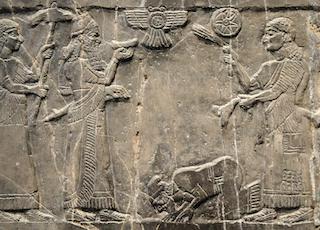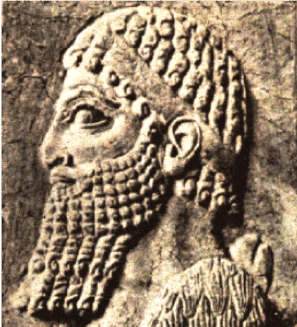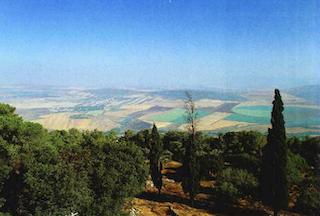 It appears, by chapter one, that the Israelites are no different than the people you destroyed in Sodom and Gomorrah, along with committing idolatry.
It appears, by chapter one, that the Israelites are no different than the people you destroyed in Sodom and Gomorrah, along with committing idolatry.
So I want to look into…
Hosea 1
Hosea’s wife and children
1 The word of the LORD that came unto Hosea, the son of Beeri, in the days of Uzziah, Jotham, Ahaz, and Hezekiah, kings of Judah, and in the days of Jeroboam the son of Joash, king of Israel.

“Hosea” – means “salvation.”
“Uzziah” – reigned 792-740 B.C.
“Jotham” – 750-732 B.C.
“Ahaz” – 735-715 B.C.
“Hezekiah” – 729-686 B.C. Some of the reigns overlapped, the co-regency of Ahaz and Hezekiah being the longest.
“Jeroboam” – Jeroboam II, 793-753 B.C. Hosea was a contemporary of Isaiah, Amos and Micah (see the similar first verse in their prophecies).
2 The beginning of the word of the LORD by Hosea. And the LORD said to Hosea, Go, take unto thee a wife of whoredoms and children of whoredoms: for the land hath committed great whoredom, departing from the LORD.

He was a king of the ancient Kingdom of Judah, and one of Amaziah’s sons, whom the people appointed to replace his father.
He is one of the kings mentioned in the genealogy of Jesus in the Gospel of Matthew.
Uzziah was sixteen when he became king of Judah and reigned for 52 years.
“Whoredoms” – spiritual harlotry (unfaithfulness) is the one great sin of which the Lord (through Hosea) accuses Israel.
3 So he went and took Gomer the daughter of Diblaim; which conceived, and bare him a son.
“Him” – the omission of this word in vv. 6, 8 may indicate that Hosea is not the father of Gomer’s next two children.
4 And the LORD said unto him, Call his name Jezreel; for yet a little while, and I will avenge the blood of Jezreel upon the house of Jehu, and will cause to cease the kingdom of the house of Israel.
“Jezreel” – means “God scatters,” here used to reinforce the announcement of judgment on the reigning house. Jeroboam II was of the dynasty of Jehu (841-814 B.C.), which was established at Jezreel by the overthrow of Ahab’s son Joram (2 Kgs 9:14-37). Jehu’s dynasty ended with the murder of Zechariah in 753 (2 Kgs 15:8-10).
5 And it shall come to pass at that day, that I will break the bow of Israel in the valley of Jezreel.
“The bow of Israel” – Israel’s military power, broken in 724 B.C., though Samaria held out under siege for some two years longer.
6 And she conceived again, and bare a daughter. And God said unto him, Call her name Lo-ruhamah: for I will no more have mercy upon the house of Israel; but I will utterly take them away.
“Lo-ruhamah” – means “not loved.” The naming represents reversal of the love (compassion) that God had earlier shown to Israel (Ex 33:19; Deut 7:6-8), but that later was promised again.
7 But I will have mercy upon the house of Judah, and will save them by the LORD their God, and will not save them by bow, nor by sword, nor by battle, by horses, nor by horsemen.
“Judah…save them” – they were saved from Assyria by the Lord in 722-721 B.C. and again in 701.
8 Now when she had weaned Lo-ruhamah, she conceived, and bare a son.
9 Then said God, Call his name Lo-ammi: for ye are not my people, and I will not be your God.
“Lo-ammi” – means “not my people.” The naming represents a break in the covenant relationship between the Lord and Israel, which later would be restored. The warnings became more sever in moving from the first to the third child.

In 745 BC, he became the new king of Assyria, and made it into an empire under absolute rule. He was the first outside power to intervene militarily in a war between the kingdoms of Israel and Judah.
10 Yet the number of the children of Israel shall be as the sand of the sea, which cannot be measured nor numbered; and it shall come to pass, that in the place where it was said unto them, Ye are not my people, there it shall be said unto them, Ye are the sons of the living God.
Cited in Rom 9:26; 1 Pet 2:10 and applied to the mission to the Gentiles.
“Yet” – the threatened punishment (vv. 4-9) would be for only a limited time, and a period of blessing would follow.
“Sand of the sea” – see the promise to Abraham and Jacob (Gen 22:17, 32:12; cf. Jer 33:212; Heb 11:12).
“Sons” – contrasts with “children of whoredoms”
“Living God” – contrasts with idols “who were not God” (Deut 32:17).
11 Then shall the children of Judah and the children of Israel be gathered together, and appoint themselves one head, and they shall come up out of the land: for great shall be the day of Jezreel.
“Gathered together” – Israel and Judah would become one nation again.
“Up out of the land” – possibly the land of exile. Another interpretation is that they would spring up from the ground as plants do.
“Jezreel” – here “God scatters” refers to sowing or planting, indicating a reversal of the meaning of the first child’s name.
The Valley of Jezreel

From the foot of Mount Tabor it branches out into three valleys; that on the north passing between Tabor and Little Hermon — that on the south between Mount Gilboa and En-Gannim — while the central portion – the Valley of Jezreel proper – runs into the Jordan Valley (which is about 1000 feet lower than Esdraelon)
The Valley of Jezreel, located between the Jordan River and the Mediterranean Sea, divides Galilee in the north from Samaria1 in the south. It is part of a larger valley that constitutes the only east-west passage across the Holy Land.

Damascus is a city of Syria, and the population today is 1,569,394/
It is also a fertile stretch of land that formed an important junction in the trade route between Egypt in the south and Damascus in the north. All of these factors, plus its relatively flat geography, have made it tremendously important and have contributed to its violent history.
During the conquest, when this area was occupied by Canaanites, the Joseph tribes were unable to wrest Jezreel from its occupants. The problem was that the flat land allowed for the effective use of chariots, which the Israelites did not have in their arsenal (Jos 17:16).

A Baalist or Baalite means a worshipper of Baal.
“Baʿal” can refer to any god and even to human officials. In some texts it is used for Hadad, a god of the rain, thunder, fertility and agriculture, and the lord of Heaven.
Since only priests were allowed to utter his divine name, Hadad, Ba‛al was commonly used.
During the Judges period Sisera, the general of the Canaanite king Jabin, had dominated this region with his 900 chariots (Jdg 4:3). Jezreel is of great importance in Hosea, a book of prophecy directed against the northern kingdom of Israel.
In Hos 1:4 the prophet, adhering to God’s direct instruction, named his first son Jezreel in an ironic allusion to the slaughter at Jezreel carried out by Jehu against the house of Ahab, and particularly against Jezebel, for their support of the prophets of Baal (2 Kgs 9:1-10:11). The irony is that Jehu’s own dynasty would be wiped out because of its continued adherence to the cult of Baal.
Hosea 1:5 proclaimed that God would break the bow of Israel in the Valley of Jezreel. This obviously pointed to a military defeat for the northern kingdom. This prophecy came to pass in 733 B.C. when Tiglath-Pileser III conquered the area.
Even so, Hosea promised that God would one day redeem Israel. Making use of the fact that Jezreel means “God sows,” promised that one day God would make Israel flourish again like a lush garden.
…Baal and the Fertility Cults.
